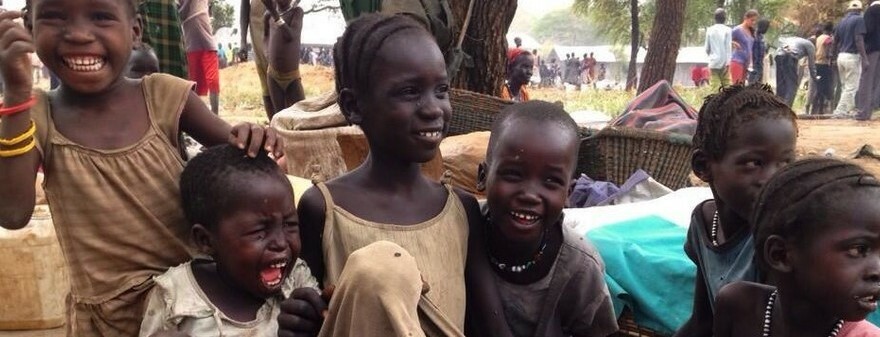Some retrogressive cultural and traditional practices continue to rob the South Sudanese child of the right to education.
However, experts in both education and legal sectors concur that the campaign to secure the South Sudan children’s rights is frustrated by economic challenges and a lack of awareness among humanitarian communities.
To emphasize on the gravity of the issue, Professor Isaac Loro, a leading advocate for children’s rights, highlights the vulnerability of children and stresses the pivotal role parents must play in ensuring these rights are safeguarded.
Loro asserts, “It is our duty as parents to protect the children. If we are unable to do so, it is better not to bring them into the world.” Urging proactive community involvement, he emphasizes that the society should not solely rely on humanitarian organizations but take the lead in ensuring children’s rights are upheld from birth.
Loro says, immediate recognition of a child’s rights is crucial, encompassing aspects such as education, health, national identity, social integration, and cultural awareness.
He stresses on the need for a collective effort to secure these fundamental rights, with education playing a pivotal role in fostering a well-rounded individual who can positively contribute to society.
“All of these rights can be realized through quality education, the rejection of violence, and dismantling harmful societal norms that hinder some children’s access to education or force them into early marriages or labour,” he explains.
George John, a South Sudanese, acknowledges the historical lag in fulfilling children’s rights but noted recent positive shifts.
He emphasizes the importance of parental awareness regarding children’s needs for education, health, and protection. John advocated against depriving children of their basic rights.
John calls on parents to actively contribute toward securing their children’s current and future aspirations.
Highlighting a societal responsibility, John urges a departure from outdated notions that hinder girls’ education due to misconceptions about marriage.
He adds, “As a society, we must discard narrow perspectives, reject early marriages, and prioritize the education of all children for a brighter future in South Sudan. This achievement is a source of pride for us as South Sudanese and for parents committed to their children’s well-being”.
Dawood Tabis Dawood says, some traditional and cultural practices in South Sudan continue to hinder girl child education hence a violation of their rights.
He points out, “There are some cultures that do not encourage girls’ education as a result of concepts that exist within their local cultural frameworks, but at the same time there are societies that are interested in educating their children, whether they are girls or boys, as an important thing. I believe that education is an important thing.”
Dawood emphasizes that significance of transformative power of education in correcting misconceptions within certain humanitarian societies and raising awareness regarding child protection.
He highlights the urgency of addressing historical violence against some children and more specifically, girls, calling for the abandonment of such practices and the promotion of awareness through education.
In agreement, Martin Samuel Mabrouk notes that progress is being made in advancing children’s rights in South Sudan, particularly in education.
He opines, “There is a decline in the level of people who violate children’s rights. Currently, there are many in our societies who protect children’s rights, especially in education, and this is considered the responsibility of parents to educate their children for a better future.”
Martin directly appeals to parents, “As a parent, if you do not educate your children, the blame will fall on your shoulders. I appeal to parents to pay attention to educating their children as children’s rights are the most important.”
Samuel Kut Juma highlights the existing legal framework for children’s rights but points out the considerable challenges in their practical application within South Sudanese societies.
He outlines two crucial areas of focus, “The first is educating children, and second, providing awareness to all members of the society about the importance of children’s rights.”
Samuel contends that achieving progress in these areas is vital, especially given the economic struggles of parents.
He says a stable source of income can boost children’s education and deter issues like child labour and trafficking.
Samuel emphasized, “If all families have sources of financial income, the lack of education for children and road traffickers can disappear, thus providing a portion of children’s rights.”
Joseph Al-Lamin, a civil rights activist explains the concept of the multifaceted nature of children’s rights based on constitutional and legal provisions.
“Every child has the right to education according to the law as a basic thing, however the hindrance posed by tuition fees, affects families unable to afford them,” he said.
Al-Lamin acknowledges the presence of cultural barriers within South Sudan, where some communities discourage children’s education, assigning them to herding their livestock or early marriages. He however indicated that the latter has decreased due to increased awareness.
“There are those who have realized through awareness and education about the existence of children’s rights in the constitution, so we, as a society, must not force our children into early marriage, but rather let them complete their studies and make the right decisions in the future.”
Child education in South Sudan faces many challenges, such as poverty, conflict, displacement, child marriage, and lack of infrastructure and resources.
According to UNICEF, more than 2.8 million children, or over 70 per cent, are out of school in South Sudan. Girls are especially disadvantaged, as only one in ten girls complete primary education.
Education is essential for the well-being and development of children and the future of the country.
To contact Radio Tamazuj with comments, news tips or information, write to radiotamazuj@gmail.com or use the contact form.




